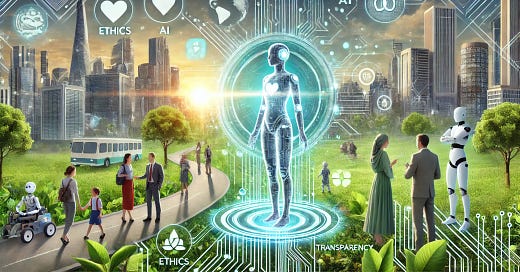The Ethical AI Revolution: Aligning Progress with Values
AI is transforming our world, but how do we ensure it aligns with human values? Explore the Ethical AI Revolution and its role in shaping our future.
Artificial Intelligence (AI) is advancing faster than ever, reshaping industries and solving problems I once thought would take decades to tackle. As we move closer to the reality of Artificial General Intelligence (AGI), I find myself thinking deeply about the importance of embedding ethics into every step of its development. The opportunities for tran…
Keep reading with a 7-day free trial
Subscribe to MyGeekSpace Newsletter to keep reading this post and get 7 days of free access to the full post archives.




